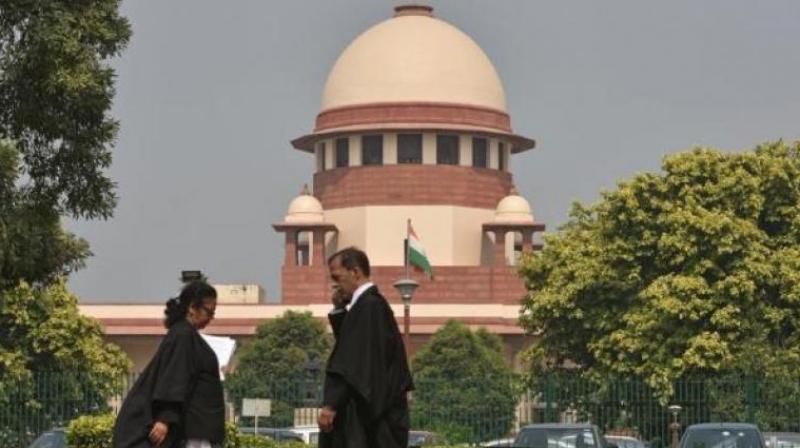SC asks Centre to mull over freebie regulation
\'It is a very serious issue. What is your suggestion on how you are going to control it?,\' court asked the government counsel

New Delhi: The Supreme Court on Tuesday asked the Centre to ascertain from the Finance Commission whether the allocation of revenue to states could be regulated, to discourage political parties from announcing freebies in their election manifestos.
Describing the practice of promising freebies as a “very serious” issue that needed to be “controlled”, Chief Justice N.V. Ramana, heading a bench comprising Justice Krishna Murari and Justice Hima Kohli, sought to know what could be done by the Finance Commission to curb or discourage freebies.
The court was hearing a PIL filed by an advocate, Ashwini Kumar Upadhyay, seeking direction to the Election Commission to include in the Election Symbol Allotment and Recognition Order a provision prohibiting recognised national and state-level political parties from making promises of freebies.
Finding the position taken by the Central government lawyer ambiguous, the court asked if the Centre viewed the issue as a serious one. “Why don’t you say that they have nothing to do with the issue?” the court said.
Posting the matter for hearing next week, the court told the government counsel, “It is a very serious issue. What is your suggestion on how you are going to control it?”
In the course of the hearing, Chief Justice Ramana asked senior advocate Kapil Sibal — describing him as a senior parliamentarian and a senior lawyer — who was in the court in connection with another matter, what he thought about the issue.
Describing the freebies as a “serious matter”, Sibal said that the Centre cannot do much about it and suggested that the Finance Commission could deal with the issue.
“The Finance Commission, when it makes allocations for various states, should take the burden of freebies on the state finances into account,” Sibal said, adding that 42 per cent of the revenue is allocated to states by the Finance Commission.
When the PIL petitioner said that political parties should be barred from making promises, the court questioned, “How can you say political parties cannot make promises? They are entitled to make promises.”
Upadhyay told the court that the combined debt of all the cases put together stands at Rs 70 lakh crore.
“Tell us how we can manage it. We must also know how we are going to control it,” CJI Ramana asked the petitioner.

